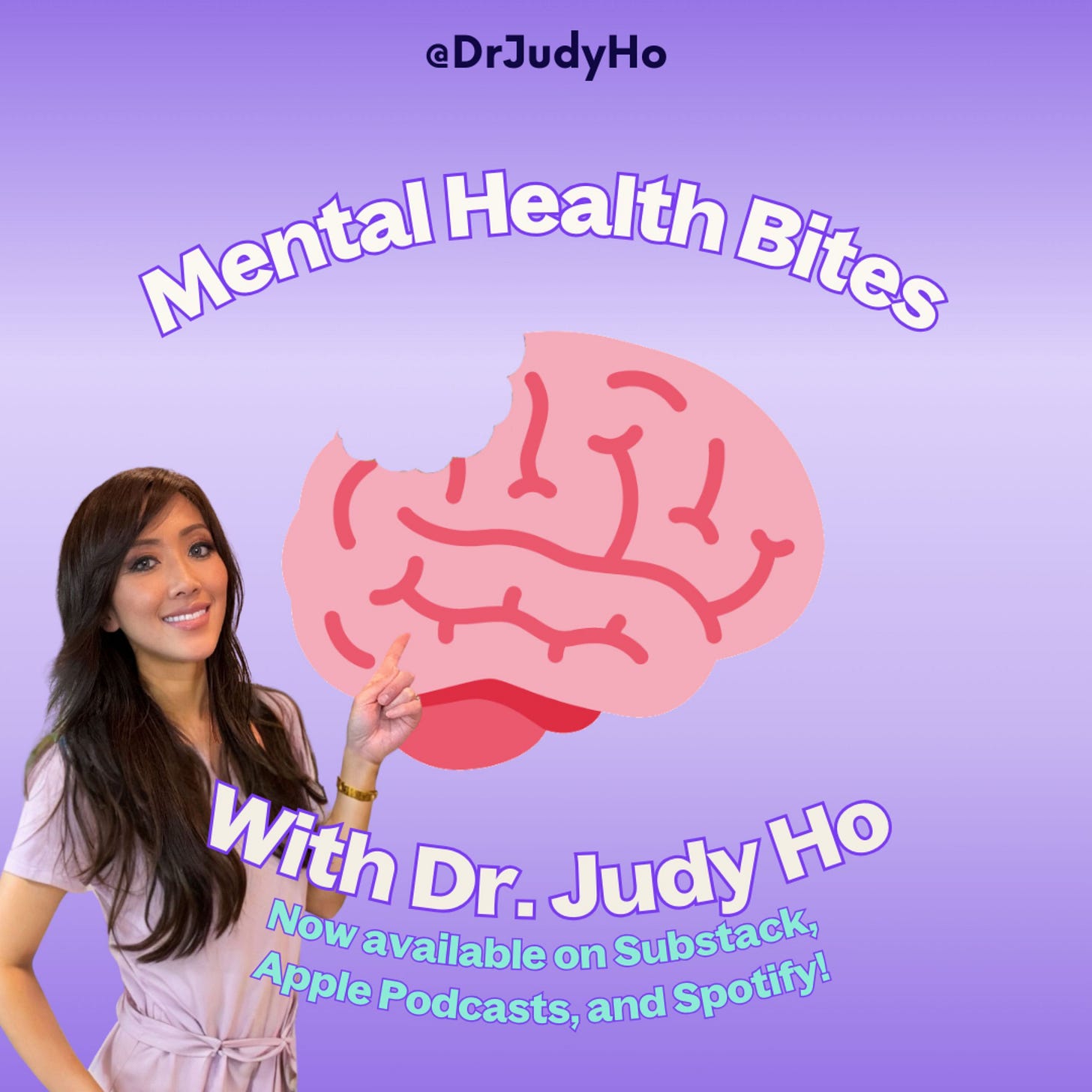
Everyday habits often go unnoticed, but they hold the power to transform your mental, emotional, and physical well-being. Factors like sleep, diet, physical activity, social connection, and stress management are essential for preventing and managing mental health issues, including depression and anxiety.
I often talk about the importance of lifestyle changes with my patients that can support their mental health and overall well-being. Sometimes we forget how essential these lifestyle changes are, and also how simple they are to implement - and yet, they lead to profound changes in how you feel.
Here are my top 5 lifestyle factors for mental wellness.
1. Sleep
Sleep is the cornerstone of mental health. Yet, more than one-third of Americans aren’t getting the recommended 7-9 hours per night (CDC). Sleep deprivation is associated with a 48% increased risk of developing depression and a 36% increased risk of anxiety. Without adequate rest, the brain struggles to regulate emotions, process stress, and function cognitively.
2. Physical Activity
Regular exercise doesn’t just boost physical health—it improves your mood. Studies show that 30 minutes of moderate activity, like brisk walking, 3-5 times a week, reduces depression symptoms by up to 47%. Movement releases endorphins, your body’s natural mood lifters.
3. Wholesome Diet
Your brain thrives on quality nutrition. Diets rich in whole foods—like the Mediterranean diet—are linked to lower rates of depression and anxiety, while diets high in sugar and processed foods increase the risk of mental health disorders.
4. Social Connection
Strong relationships are vital. Loneliness is as damaging to health as smoking 15 cigarettes a day (Harvard study). Meanwhile, meaningful connections reduce stress and improve emotional well-being.
5. Stress Management
Chronic stress disrupts cortisol levels, which can harm mood and memory. Simple techniques like mindfulness, deep breathing, or meditation for 5-10 minutes daily help lower cortisol and regulate emotions.
For an even deeper dive into lifestyle factors and techniques for improvement, check out my most recent podcast episode of Mental Health Bites with Dr. Judy (you can listen right here in substack, on Apple, Spotify, or watch on YouTube).
In this newsletter, I’d like to home in on one crucial (and often overlooked) lifestyle factor out of the top 5: Quality Sleep.
The Role of Sleep Hygiene
If sleep is the foundation of mental health, sleep hygiene is the blueprint. Sleep hygiene refers to habits that promote consistent, quality sleep. By addressing these habits, you can reset your internal clock, improve emotional regulation, and enhance overall well-being.
Here’s a simple 5-step nighttime routine to optimize your sleep:
Set a Consistent Sleep Schedule: Go to bed and wake up at the same time every day, even on weekends. Consistency strengthens your body’s circadian rhythm.
Wind Down with Light Physical Activity: Do 5-10 minutes of gentle yoga, stretching, or deep breathing. This helps release tension and prepare your body for rest.
Choose a Sleep-Friendly Snack: Reach for a banana, almonds, or warm milk—foods rich in tryptophan or magnesium to promote relaxation.
Disconnect from Screens: Turn off phones, TVs, and computers at least 30 minutes before bed to reduce blue light exposure, which interferes with melatonin production.
Practice Relaxation Techniques: Spend the last 10-15 minutes journaling, meditating, or listing three things you’re grateful for. This calms your mind and shifts your focus from stress to positivity.
Sleep Hygiene Do’s and Don’ts

Still having trouble sleeping? Try these do’s and don’ts to refine your routine:
Do:
Stick to a consistent sleep schedule: Go to bed and wake up at the same time every day, even on weekends. Consistency strengthens your circadian rhythm, making it easier to fall asleep and wake up naturally.
Create a comfortable sleep environment: Keep your bedroom cool, dark, and quiet. A restful environment signals your brain that it’s time to unwind and helps prevent sleep disturbances.
Expose yourself to natural light during the day: Spend time outdoors or near a window during daylight hours. Sunlight helps regulate melatonin levels, improving both sleep quality and mood.
Limit naps to 20-30 minutes: Take them earlier in the day if needed. Short naps can recharge your energy without disrupting your nighttime sleep cycle.
Don’t:
Use electronics before bed: Avoid screens—like phones, TVs, and computers—at least 30-60 minutes before bedtime. Blue light suppresses melatonin, the hormone responsible for sleep, making it harder to drift off.
Eat large meals, caffeine, or alcohol close to bedtime: These can cause discomfort, indigestion, or restless sleep. Instead, finish eating at least 2-3 hours before bed to give your body time to digest.
Engage in emotionally or physically stimulating activities right before bed: Avoid intense workouts, emotionally charged shows, or last-minute work emails. These activities can spike adrenaline and keep your mind racing.
Ignore persistent sleep problems: If you consistently struggle with falling or staying asleep, consult a healthcare provider. Chronic sleep issues can have serious mental and physical health implications if left untreated.
Why It Matters
The choices you make today lay the groundwork for a healthier tomorrow. Lifestyle factors like sleep, diet, and stress management may seem small, but they have a monumental impact on your mental health.
Take it step by step. Start by improving one area, like your sleep routine, and watch as the benefits ripple into every corner of your life.
For more practical tips and an in-depth discussion, check out the latest episode of Mental Health Bites with Dr. Judy—where we explore how to take control of your lifestyle and your mental health.
Share the Knowledge
If these tips resonated with you, share them with a friend or loved one. Let’s help everyone get the sleep and mental health they deserve. Don’t sleep on this—small changes can lead to big transformations.
Order The New Rules of Attachment here: https://bit.ly/3MvuvvF
Take my Attachment Styles Quiz!
About me:
Dr. Judy Ho, Ph. D., ABPP, ABPdN is a triple board certified and licensed Clinical and Forensic Neuropsychologist, a tenured Associate Professor at Pepperdine University, television and podcast host, and author of Stop Self-Sabotage. An avid researcher and a two-time recipient of the National Institute of Mental Health Services Research Award, Dr. Judy maintains a private practice where she specializes in comprehensive neuropsychological evaluations and expert witness work. She is often called on by the media as an expert psychologist and is also a sought after public speaker for universities, businesses, and organizations.
Dr. Judy received her bachelor's degrees in Psychology and Business Administration from UC Berkeley, and her masters and doctorate from SDSU/UCSD Joint Doctoral Program in Clinical Psychology. She completed a National Institute of Mental Health sponsored fellowship at UCLA's Semel Institute.















Share this post